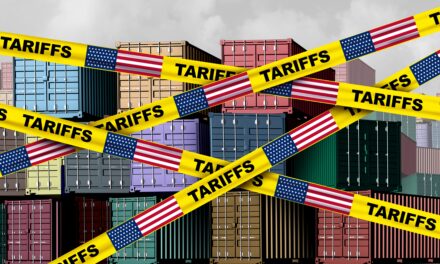Kentucky’s Rand Paul is the fourth Republican Senator to announce they will join with Democrats in voting to block Donald Trump’s border wall emergency declaration, likely forcing the president to exercise his veto powers to override the block.
Paul also penned an op-ed for Fox News on Sunday that said the Supreme Court will likely strike down Trump’s emergency declaration, with the president’s two appointments, Brett Kavanaugh and Neil Gorsuch, likely voting against giving him the authority to “violate the will of Congress.”
More on that later.
First, the Senate needs 51 votes to override the emergency declaration, and Paul’s vote would be the 51st assuming all 47 Democrats vote against it. Paul joins Sens. Susan Collins of Maine, Lisa Murkowski of Alaska and Thom Tillis of North Carolina as the first four Republicans to join with Democrats. Though, there are reportedly about 10 more Senate Republicans, led by Lamar Alexander, R-Tenn., ready to vote against Trump’s emergency declaration.
“I can’t give extra-Constitutional powers to the president,” Paul said during a speech largely devoted to praising Trump’s achievements in office at the Southern Kentucky Lincoln Day Dinner on Saturday.
Paul said allowing the president to bypass Congress to get funding for his long-promised border wall sets a dangerous precedent.
Per the Bowling Green Daily News, which covered the event:
“I can’t vote to give the president the power to spend money that hasn’t been appropriated by Congress,” Paul said just moments after drawing applause for his praise of some Trump policies and his ridicule of some congressional Democrats. “We may want more money for border security, but Congress didn’t authorize it. If we take away those checks and balances, it’s a dangerous thing.”
With the declaration blocked, Trump can exercise his veto authority to get the $5.7 billion needed to build the wall, setting up yet another vote in which Congress needs a two-thirds majority in both chambers to override the veto, which seem unlikely. If there is any chance the veto could be overridden, which would be a tremendous blow to his authority and ego, Trump would likely withdraw it entirely.
The more likely scenario is that Congress doesn’t have a two-thirds majority, and the Democrats will sue the White House. The case would likely end up in the Supreme Court, which also won’t go well for Trump, according to Paul, who said, “I think the president’s own picks to the Supreme Court may rebuke him on this.”
Per Rand Paul, following in the footsteps of his father, Ron Paul, who also said the national emergency doesn’t trump the Constitution, via Fox News:
There are really two questions involved in the decision about emergency funding. First, does statutory law allow for the president’s emergency orders, and, second, does the Constitution permit these emergency orders? As far as the statute goes, the answer is maybe — although no president has previously used emergency powers to spend money denied by Congress, and it was clearly not intended to do that.
But there is a much larger question: the question of whether or not this power and therefore this action are constitutional. With regard to the Constitution, the Supreme Court made it very clear in Youngstown Steel in 1952, in a case that is being closely reexamined in the discussion of executive power. In Youngstown, the Court ruled that there are three kinds of executive order: orders that carry out an expressly voiced congressional position, orders where Congress’ will is unclear, and, finally, orders clearly opposed to the will of Congress.
To my mind, like it or not, we had this conversation. In fact, the government was shut down in a public battle over how much money would be spent on the wall and border security. It ended with a deal that Congress passed and the president signed into law, thus determining the amount.
Congress clearly expressed its will not to spend more than $1.3 billion and to restrict how much of that money could go to barriers. Therefore, President Trump’s emergency order is clearly in opposition to the will of Congress.
Moreover, the broad principle of separation of powers in the Constitution delegates the power of the purse to Congress.This turns that principle on its head.
And now we wait to hear the president’s response.
Click here to read Paul’s op-ed in full.




